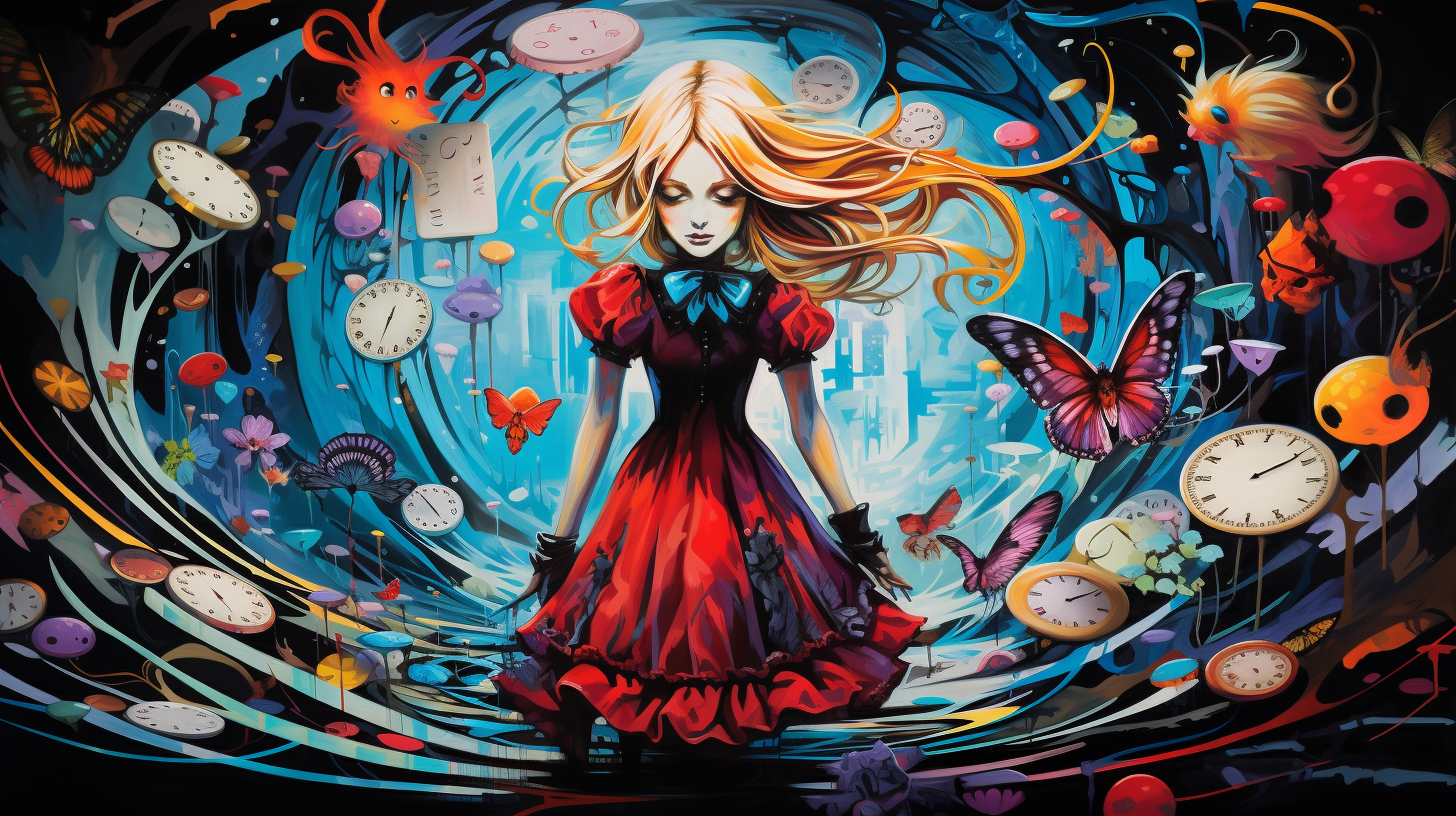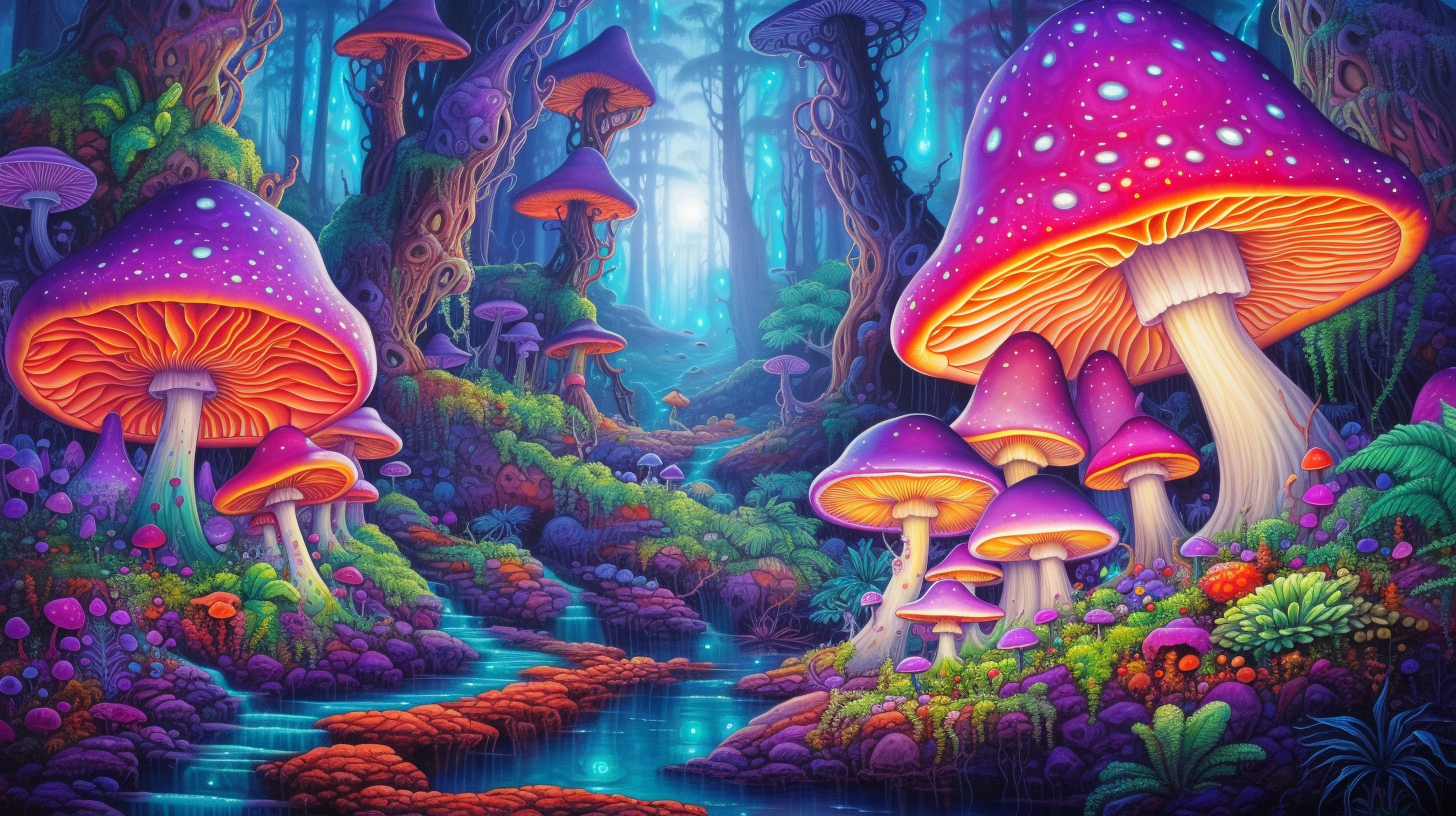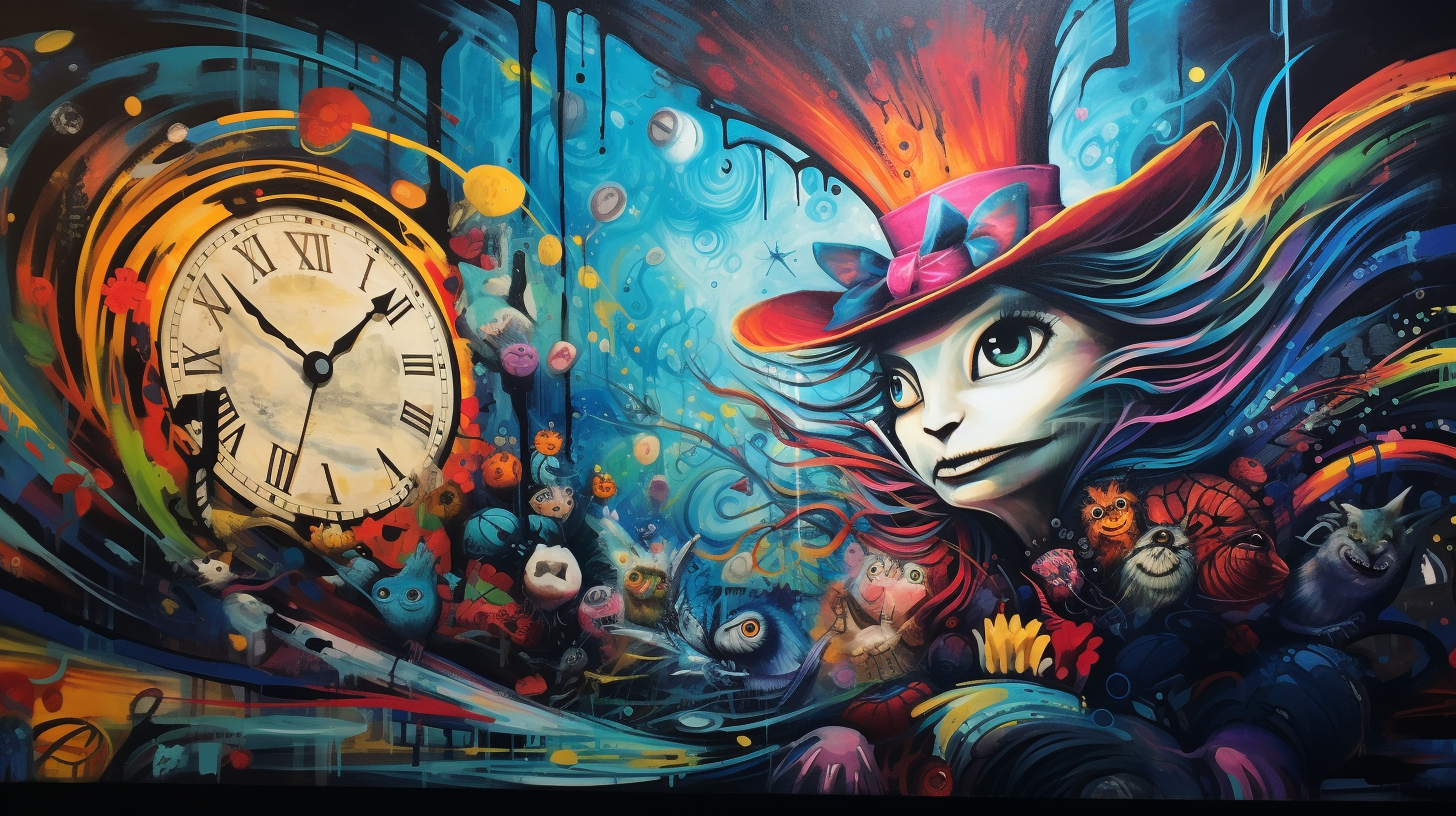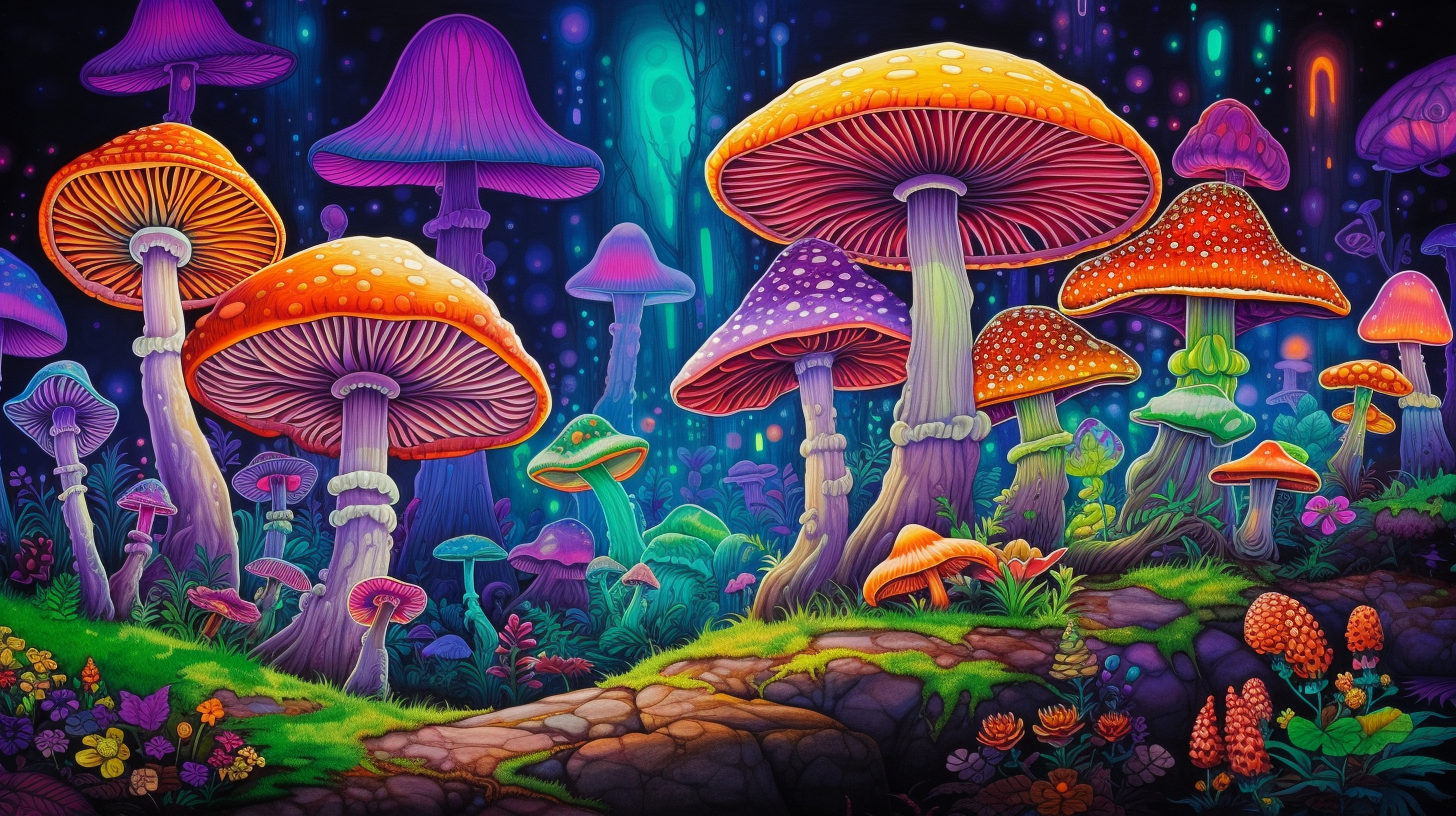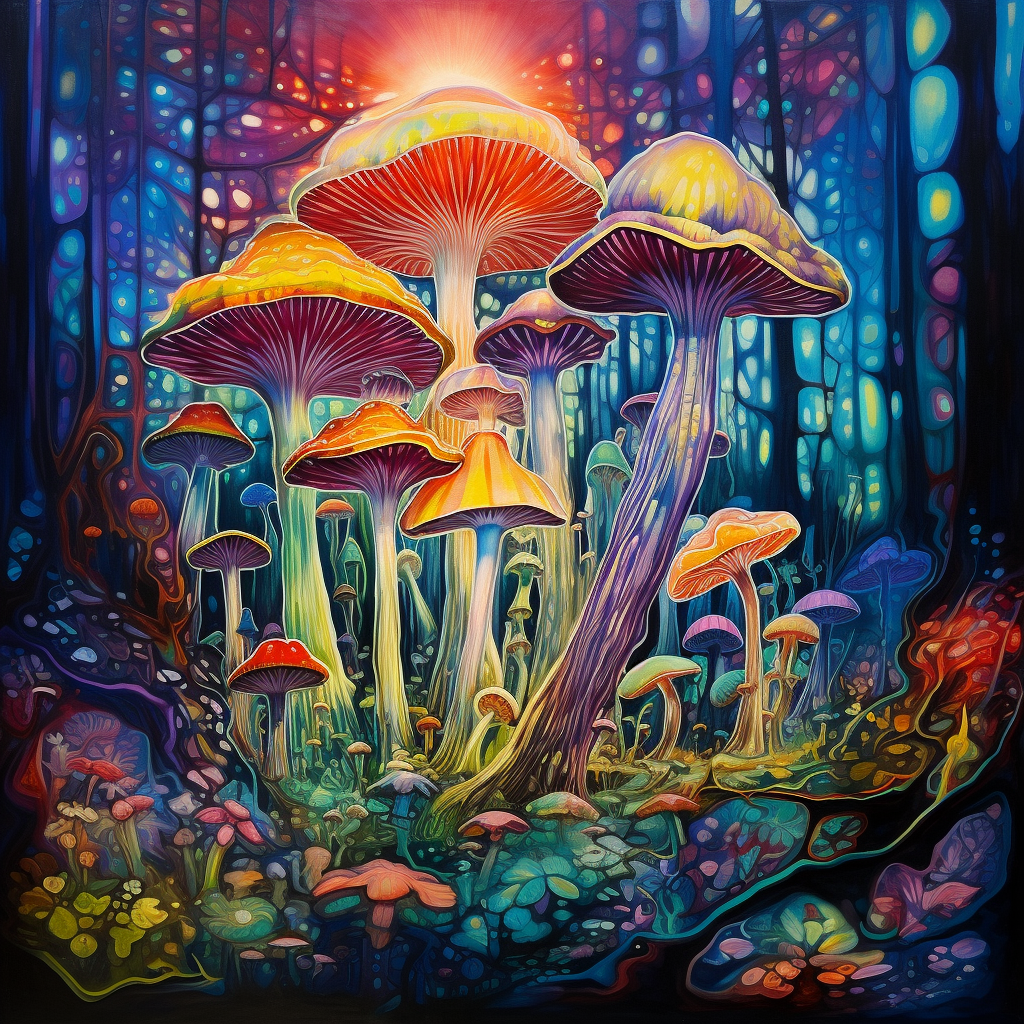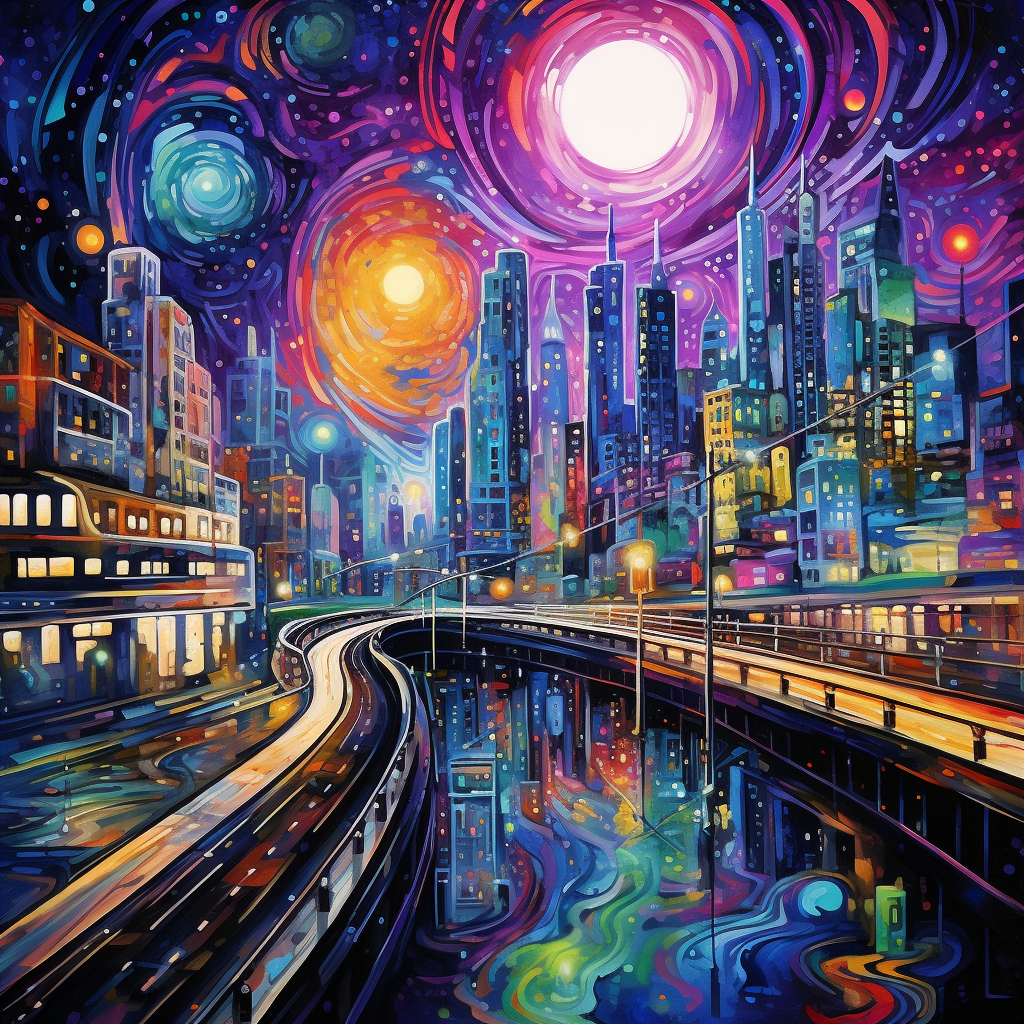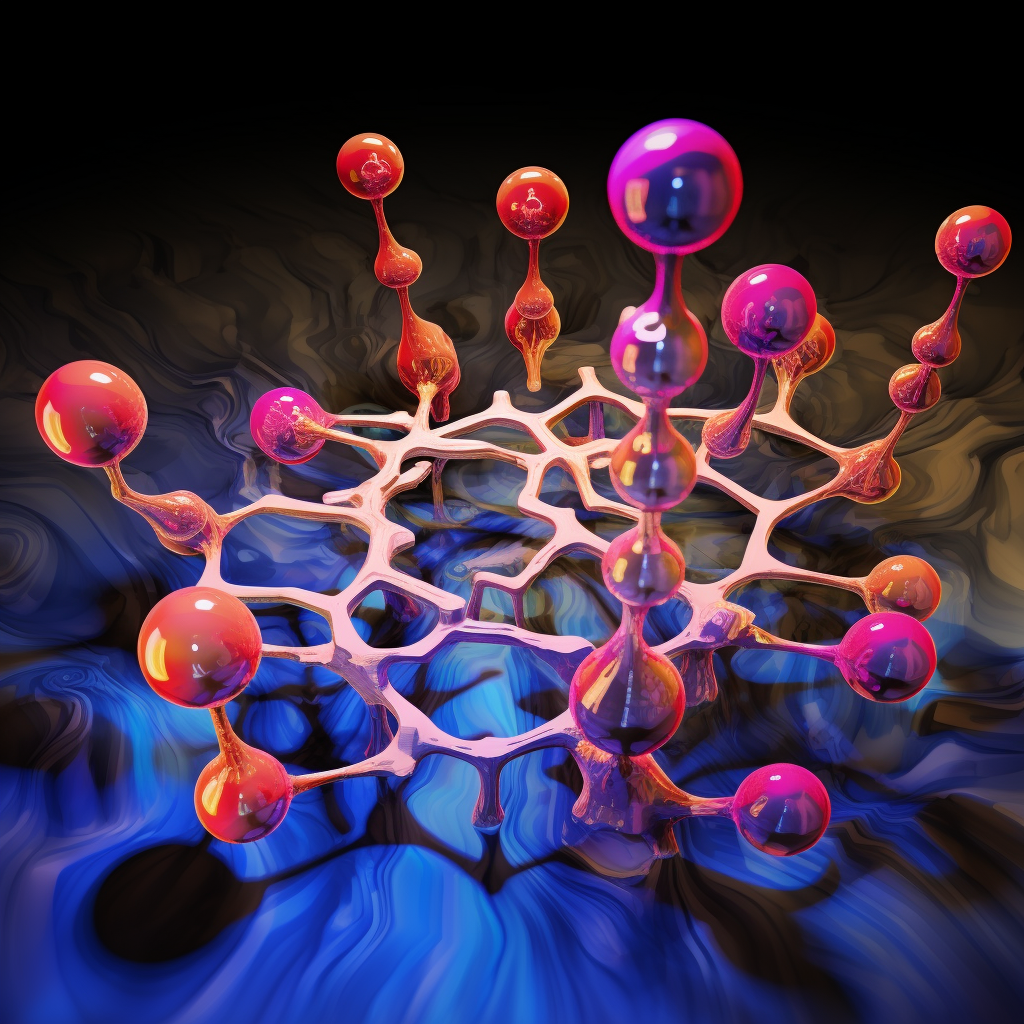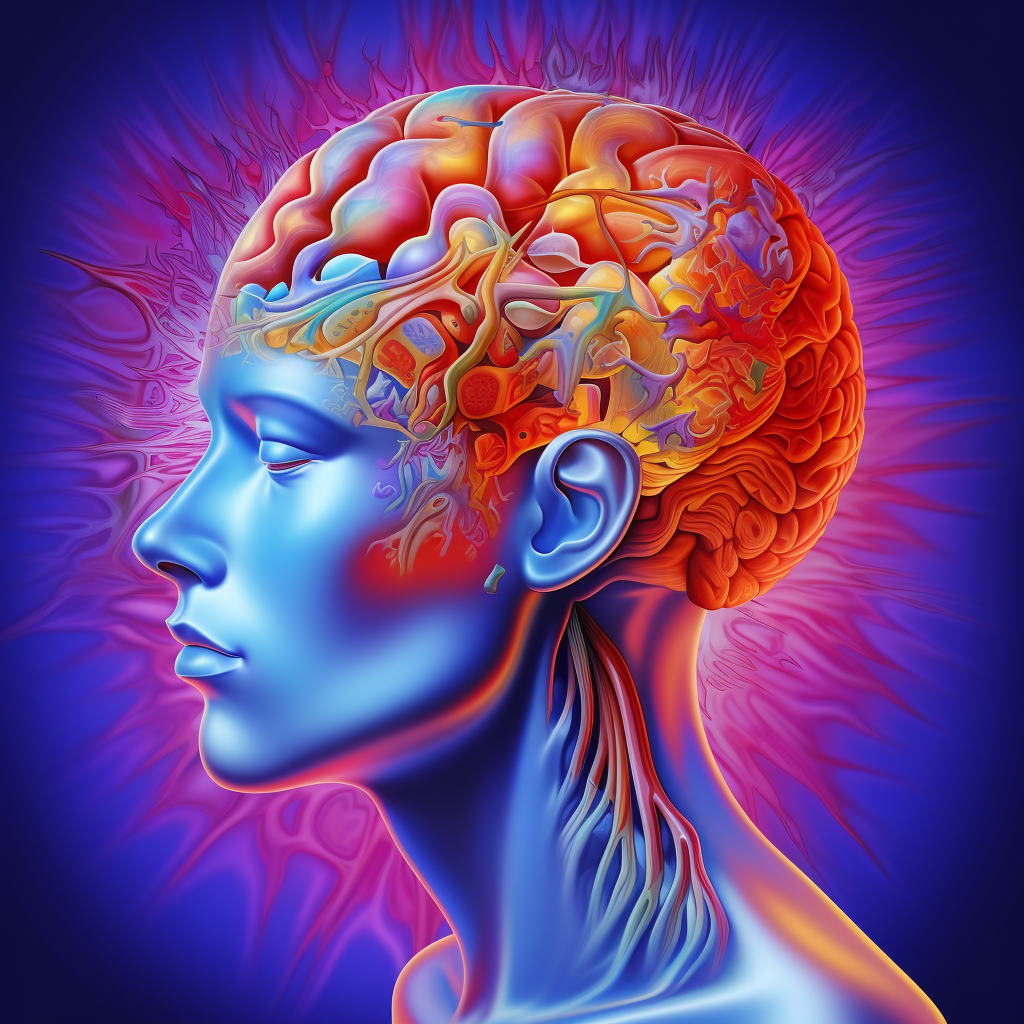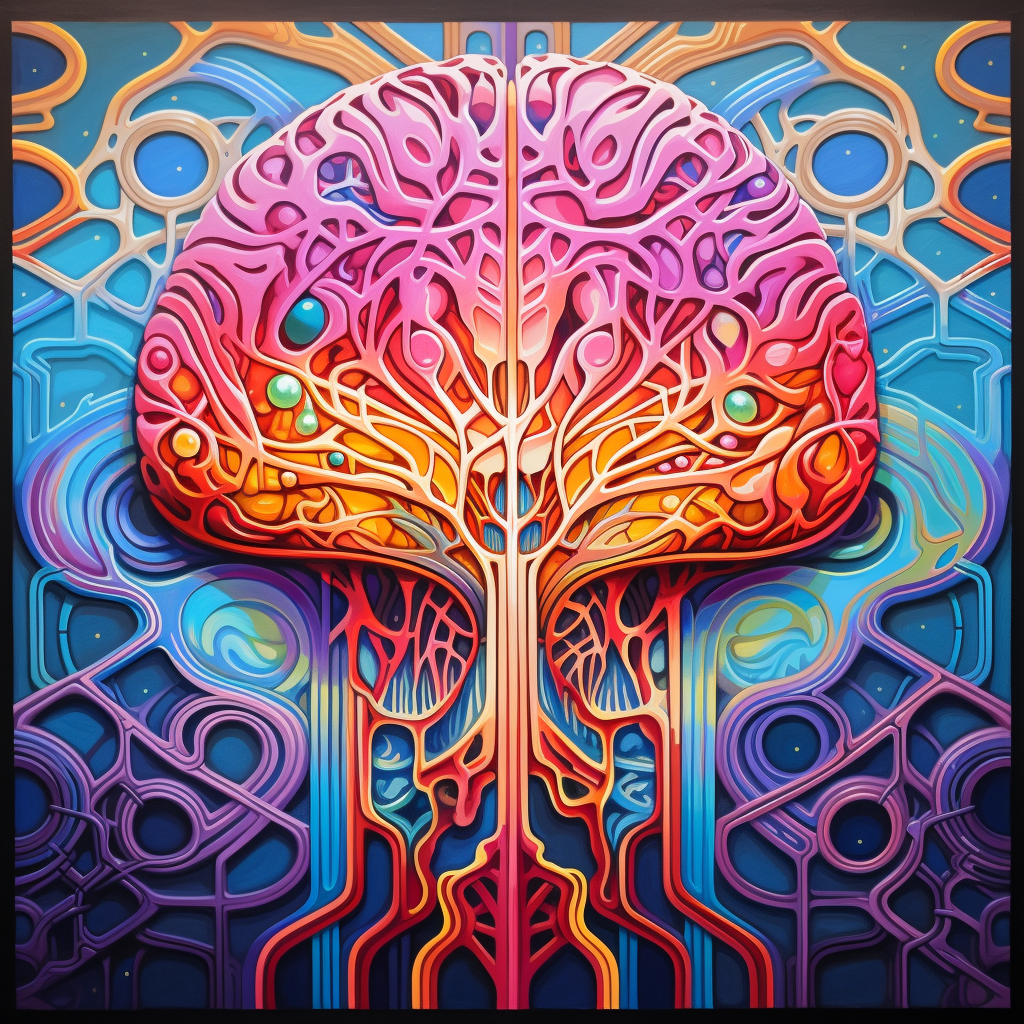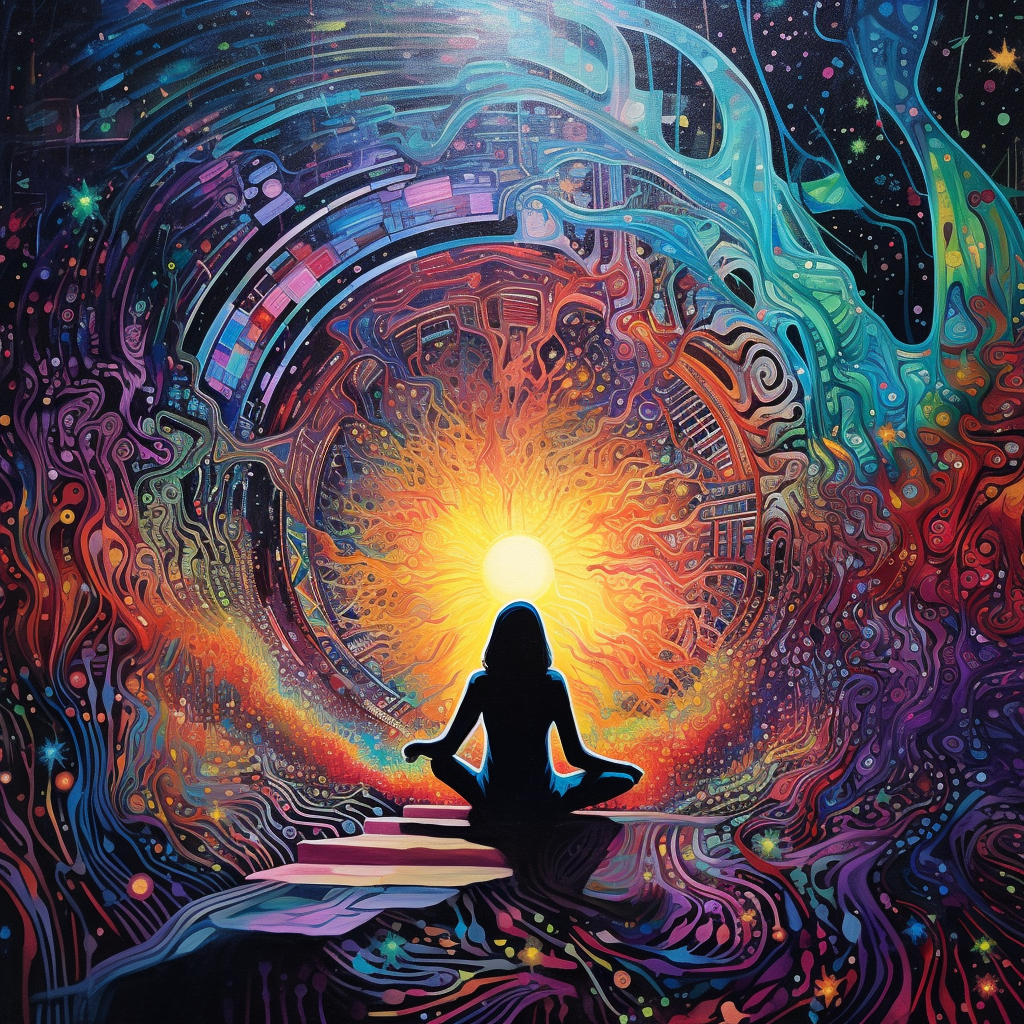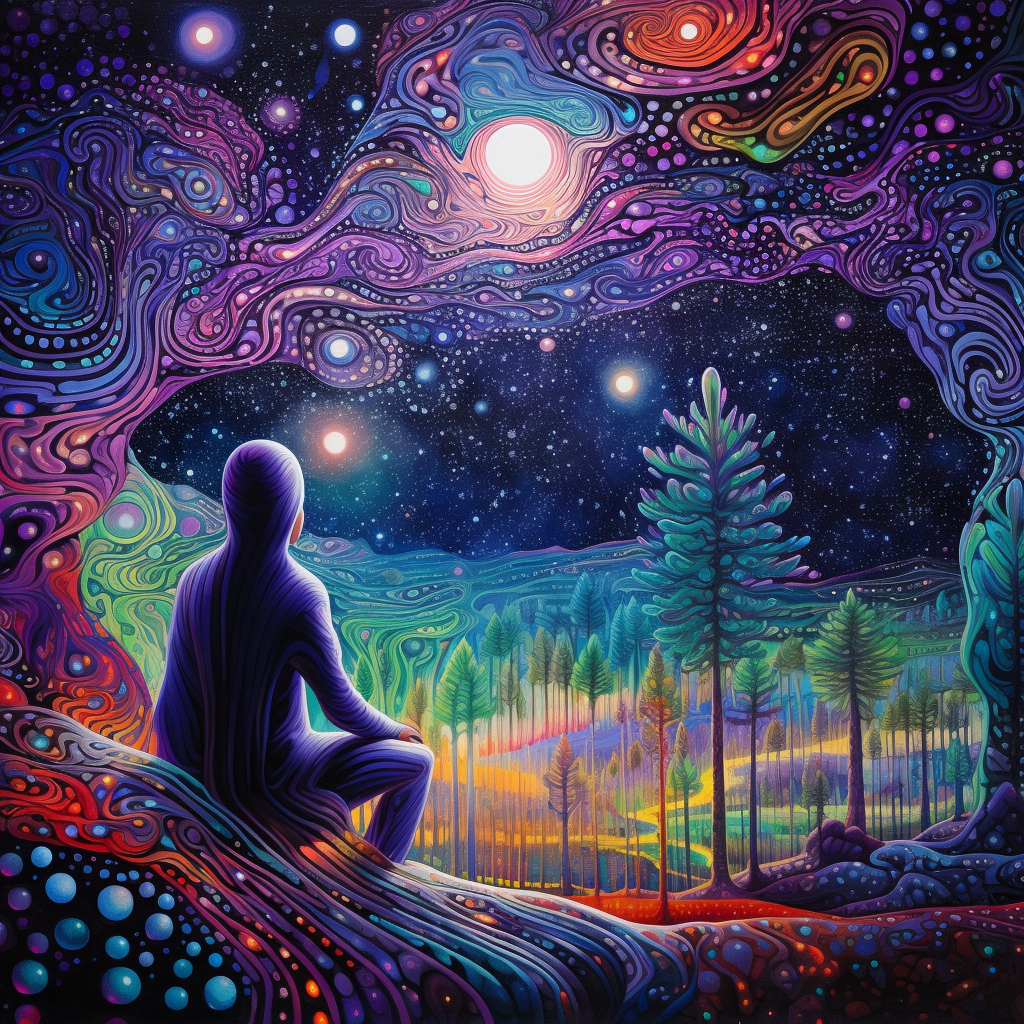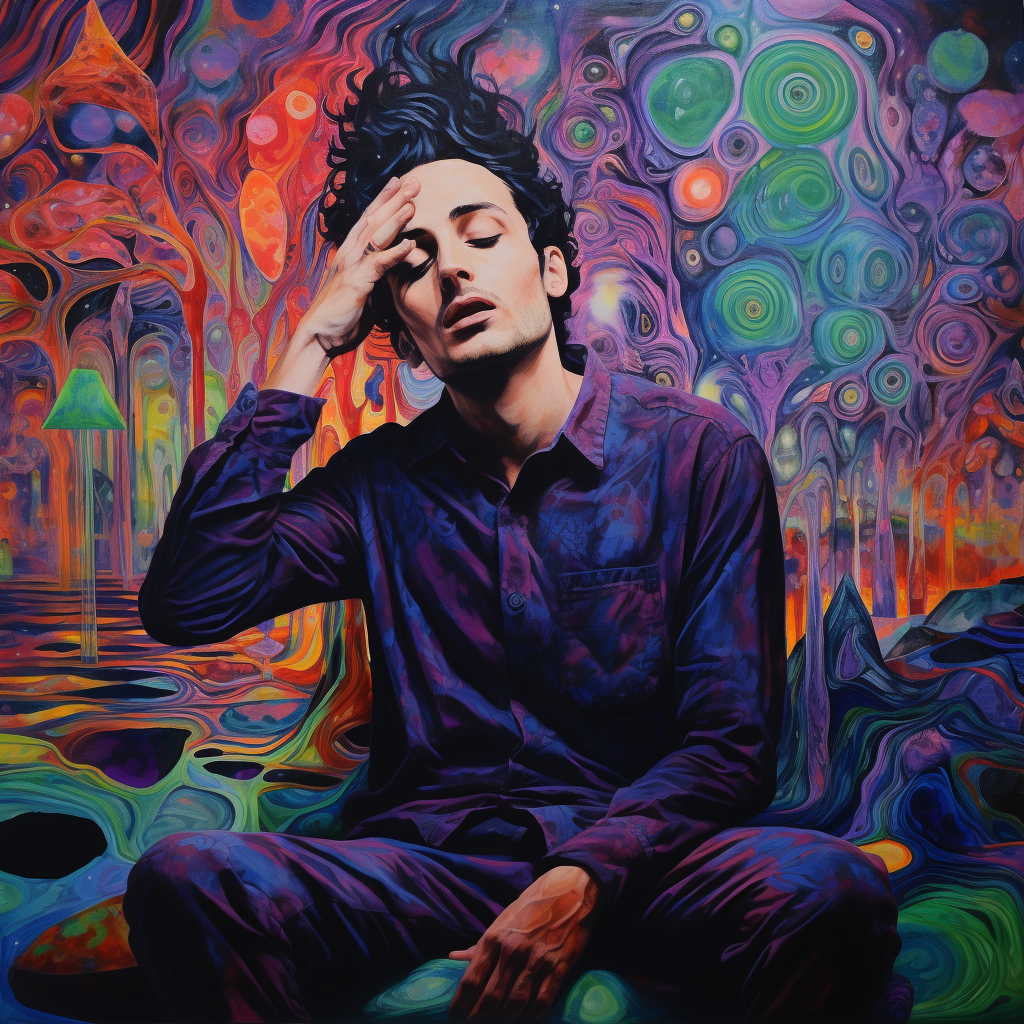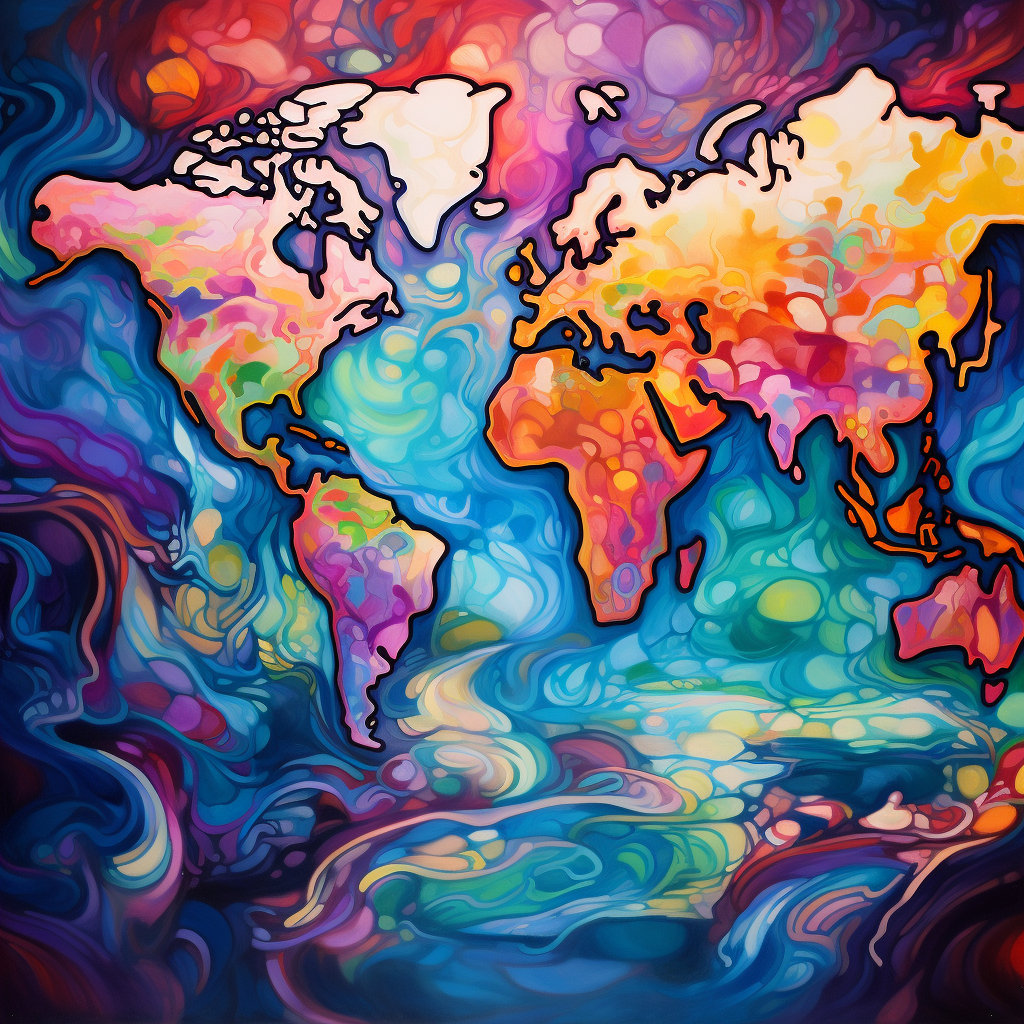We're in Beta 🙃
Psilocybin
Psilocybin, commonly known as "magic mushrooms," is a natural psychedelic compound found in certain mushroom species. It is one of the most commonly used psychedelics in recreational, therapeutic and research contexts today, though its use in sacred rituals goes back thousands of years.
Derived from certain mushroom species, psilocybin is converted to psilocin in the body, which interacts with serotonin receptors and induces altered perceptions and heightened emotions. It is known for eliciting vivid visual experiences, introspective insights, and in higher doses, mystical encounters.
History and Cultural Significance
Cultural Origins
Psilocybin has a rich history that dates back to ancient times, deeply rooted in the spiritual and shamanic practices of indigenous cultures across the globe. The use of magic mushrooms, as they are colloquially known, has been documented in various ancient civilizations including those in Central and South America.
In Mesoamerican cultures, psychedelic mushrooms were revered and utilized in religious rituals to induce visionary states and connect with the divine. They were known by names such as teonanácatl, which translates to "flesh of the gods."
Shamans and other participants would consume these mushrooms in sacred ceremonies to foster a deeper spiritual understanding and a stronger connection to the natural and supernatural world.
Modern Applications
The 1950s saw a wave of research and a psychedelic renaissance that explored this substance's therapeutic and spiritual potential, until it was shut down by the war on drugs and made illegal.
The modern-day resurgence in psilocybin research, propelled by promising findings from renowned institutions, demonstrates that this psychedelic may hold potential to treat a wide range of mental health conditions, including depression, anxiety and addiction.
Beyond its therapeutic applications, it has gained popularity as a tool for personal growth, spiritual exploration, and self-discovery. Microdosing mushrooms, or taking small, sub-perceptual doses on a regular basis, has also gained popularity as a way to enhance focus, creativity, and overall well-being without producing the intense hallucinogenic effects associated with higher doses.
The Chemistry of Psilocybin
 Psilocybin is a naturally occurring psychedelic compound that belongs to the class of substances known as tryptamines, which are derived from the amino acid tryptophan. Its chemical name is 4-phosphoryloxy-N,N-dimethyltryptamine, often abbreviated as 4-PO-DMT. This structure closely resembles that of the neurotransmitter serotonin, a similarity that underlies its psychoactive effects.
Psilocybin is a naturally occurring psychedelic compound that belongs to the class of substances known as tryptamines, which are derived from the amino acid tryptophan. Its chemical name is 4-phosphoryloxy-N,N-dimethyltryptamine, often abbreviated as 4-PO-DMT. This structure closely resembles that of the neurotransmitter serotonin, a similarity that underlies its psychoactive effects.
Upon ingestion, psilocybin is rapidly dephosphorylated (a process by which phosphate groups are removed from a molecule by a phosphatase) to produce psilocin (4-HO-DMT), its active metabolite. Psilocin is structurally similar to serotonin, enabling it to interact with serotonin receptors in the brain and produce psychedelic effects.
Psilocybin's conversion to psilocin initiates the psychedelic experience, and it's the psilocin that primarily interacts with the serotonin receptors, specifically the 5-HT2A receptor, to elicit the mind-altering effects associated with psilocybin mushrooms.
How Psilocybin Affects Your Brain
As mentioned above, psilocybin's psychoactive effects primarily originate from its active metabolite, psilocin. Upon ingestion, the body rapidly converts psilocybin to psilocin, which then interacts with the brain's serotonin receptors, especially the 5-HT2A receptor. Here's a deeper dive:
Serotonin Receptor Binding: Psilocin’s structural similarity to serotonin allows it to bind to and activate serotonin receptors (5-HT receptors) in the brain. By binding to these receptors, psilocin alters the usual serotonin transmission, leading to changes in mood, perception, and cognition.
Neuroplasticity Enhancement: Recent research suggests psilocybin may promote neuroplasticity (Vos et al., 2021; Inserra et al., 2020), the ability of brain networks to reorganize and form new connections. This is thought to occur through the induction of a protein called Brain-Derived Neurotrophic Factor (BDNF), which supports the survival of existing neurons and encourages the growth of new neurons and synapses (Meer et al., 2023).
Default Mode Network Disruption: As psilocin activates the serotonin receptors, a cascade of neural events is triggered, temporarily disrupting the Default Mode Network (DMN) (Carhart‐Harris et al., 2012).
The DMN is often deemed the "me center" of the brain, associated with self-identity and inner narrative. Therefore, this disruption facilitates a more fluid sense of self, allowing for ego dissolution and enhanced interconnectivity between brain regions.
Enhanced Emotional Processing: Users have found that psychedelic mushrooms heighten emotional processing and increase emotional memory accessibility, which can be particularly useful in psychotherapeutic settings for addressing traumatic memories or exploring emotional challenges (Carhart‐Harris et al., 2016).
Altered Brain Connectivity: Psychedelic mushrooms induce a state of hyper-connectivity between brain regions that don't usually communicate. This enhanced connectivity is thought to underlie the novel thoughts and perceptions experienced during a psilocybin session.
Ongoing research continues to unravel the complex interactions between psilocybin, the serotonin system, and the broader neural network, shedding light on both the therapeutic potential and the profound experiential dimensions of this ancient psychedelic compound.
Psychedelic Mushroom Strains
There are hundreds of different types of psychoactive mushrooms, each with unique characteristics and potencies. With names like Golden Teacher, Penis Envy and Blue Meanie, each strain offers a distinct experience, with variations in potency, visual characteristics, and the type of trip they tend to induce.
These strains can contain various amounts of psilocybin, psilocin, and other analogs of psilocybin such as baeocystin, norbaeocystin, bufotenin, and others. Because mushrooms have these different types of alkaloids, the journey can be perceptually different and the potential effects could vary across strains. Similar to the “entourage effect” in cannabis where cannabinoids like THC and CBD work together in the body, it’s thought that the alkaloids in mushrooms could be acting in a similar way.
The Psilocybin Experience
A magic mushroom “trip” is a complex, multi-faceted phenomenon that varies from person to person. The subjective effects are influenced by the dose, the individual’s mindset, and the environment in which the substance is taken. Here are common aspects of the psychedelic mushroom experience:
Altered Perception: Users report significantly altered perception, experiencing vivid visual and auditory hallucinations. Colors may appear more vibrant, patterns may seem to move or morph, and individuals may experience synesthesia, where one sense is perceived as another (e.g., seeing sounds).
Ego Dissolution: A hallmark of high-dose psilocybin experiences is ego dissolution or ego death, where the boundaries between the self and the outside world become blurred. This can lead to a sense of unity or interconnectedness with other people and nature.
Enhanced Emotions: Emotions are often intensified, whether they are positive or negative. Individuals may experience waves of euphoria, love, and a sense of peace, or they could encounter anxiety, fear, and paranoia, especially if in an unsupportive environment.
Spiritual or Mystical Experiences: Some individuals report profound spiritual or mystical experiences, describing feelings of transcendence, divine encounters, or insights into life and existence.
Time Perception Alteration: The perception of time often becomes distorted, with time seeming to slow down or even stand still.
Introspection: Psilocybin can also induce deep introspective thoughts and life reflections, enabling individuals to explore personal issues, relationships, and existential themes.
Cognitive Flexibility: The temporary disruption of normal thought patterns can lead to cognitive flexibility, where individuals are able to view situations, problems, or concepts from a new perspective.
Physical Sensations: Physical sensations may be heightened or altered, with individuals reporting changes in body temperature, a feeling of lightness or floating, and tactile hallucinations.
The psilocybin experience can be described as...
I felt as though I were communing directly with a plant for the first time.
The psilocybin experience is a way to connect with our own sense of spirituality and find meaning in our lives.
When we look within ourselves with psilocybin, we discover that we do not have to look outward toward the futile promise of life that circles distant stars in order to still our cosmic loneliness. We should look within; the paths of the heart lead to nearby universes full of life and affection for humanity.
Extremely difficult experiences can sometimes also be very meaningful experiences—catharsis often results in positive personal meaning or spiritual significance.
Can Psilocybin Help with Severe Mental Health Conditions?
An ever-increasing body of research and clinical trials is showing promising results that psilocybin-assisted psychotherapy could offer relief for individuals suffering from conditions that are often resistant to traditional treatments.Depression
Clinical trials have shown promising results in treating both major depressive disorder and treatment-resistant depression with psilocybin. Preliminary evidence is so strong that the FDA granted "breakthrough therapy" designation to psilocybin-assisted therapy for treatment-resistant depression, based on the results of a clinical trial conducted by the nonprofit research organization, the Usona Institute. It's believed that this psychedelic can help reset the brain’s default mode network, which is often overactive in individuals with depression, promoting a shift in mood and outlook.
Anxiety
Psilocybin has shown promise in alleviating anxiety by reducing activity in the Default Mode Network (DMN), which is often hyperactive in individuals with anxiety. Traditionally, this psychedelic has been studied for its ability to ease fear and anxiety in people who have terminal illnesses, but historical and recent research suggests this substance, in both psychoactive and microdoses, may help alleviate stress and anxiety-related symptoms among healthy and clinical populations.
Addiction
Psilocybin has shown promise in treating substance abuse disorders, including alcohol and tobacco addiction. Research is showing us how psychedelics like this disrupt the patterns of activity in the brain that lead to addiction, helping break the cycle of craving and habitual behavior. By promoting self-reflection, addressing feelings of disconnection and altering habitual thought patterns, psilocybin may help people heal the root causes of their addictive behaviors and support their long-term recovery.
Obsessive-Compulsive Disorder (OCD)
Preliminary research suggests that it may also help alleviate symptoms of OCD by promoting cognitive flexibility, which may help disrupt and even eliminate the intrusive, repetitive and rigid thoughts and behaviors that characterize this condition. The introspective insights gained could also aid in addressing underlying issues contributing to OCD symptoms.
Post-Traumatic Stress Disorder (PTSD)
By disrupting the normal functioning of the brain, psilocybin can help break the traumatic cycle that occurs in patients suffering from PTSD, helping them process traumatic experiences in new and more productive ways, as well as break down the rigid thought patterns and negative self-talk that often contribute to the development and maintenance of PTSD symptoms. While more research is needed, there are some promising studies suggesting that it could be effective in treating PTSD.
End-of-Life Existential Distress
For patients suffering from life-threatening illness, this substance's potential to facilitate profound spiritual experiences, emotional processing and a sense of peace may significantly alleviate existential distress and improve well-being. A Johns Hopkins study found that "psilocybin produced immediate, substantial, and sustained improvements in anxiety, depression, and existential distress and led to decreases in cancer-related demoralization and hopelessness, improved spiritual well-being, and increased quality of life."
It's important to note that while this psychedelic offers an intriguing avenue for mental health benefits, it is not a standalone treatment for severe mental health conditions and this or any other psychedelic treatment should be conducted under the supervision of trained professionals in a controlled, supportive environment.
Microdosing: An Alternative Approach


Microdosing, a practice gaining traction in both scientific and wellness circles, involves taking tiny amounts of psilocybin to attain subtle cognitive and emotional enhancements without the intensity of a full-blown psychedelic experience. The dose used for microdosing is typically 5-10% of a typical psychoactive dose. The experience is sub-perceptual, meaning there is no intoxication or impairment of normal functioning, and no hallucinogenic effects.
People are microdosing for a range of therapeutic and self-optimization purposes, with many reporting positive life changes, including: higher levels of creativity, more energy, increased focus, and improved relational skills, as well as reduced anxiety, stress, and even depression.
✨ Benefits + Effects of Psilocybin ✨
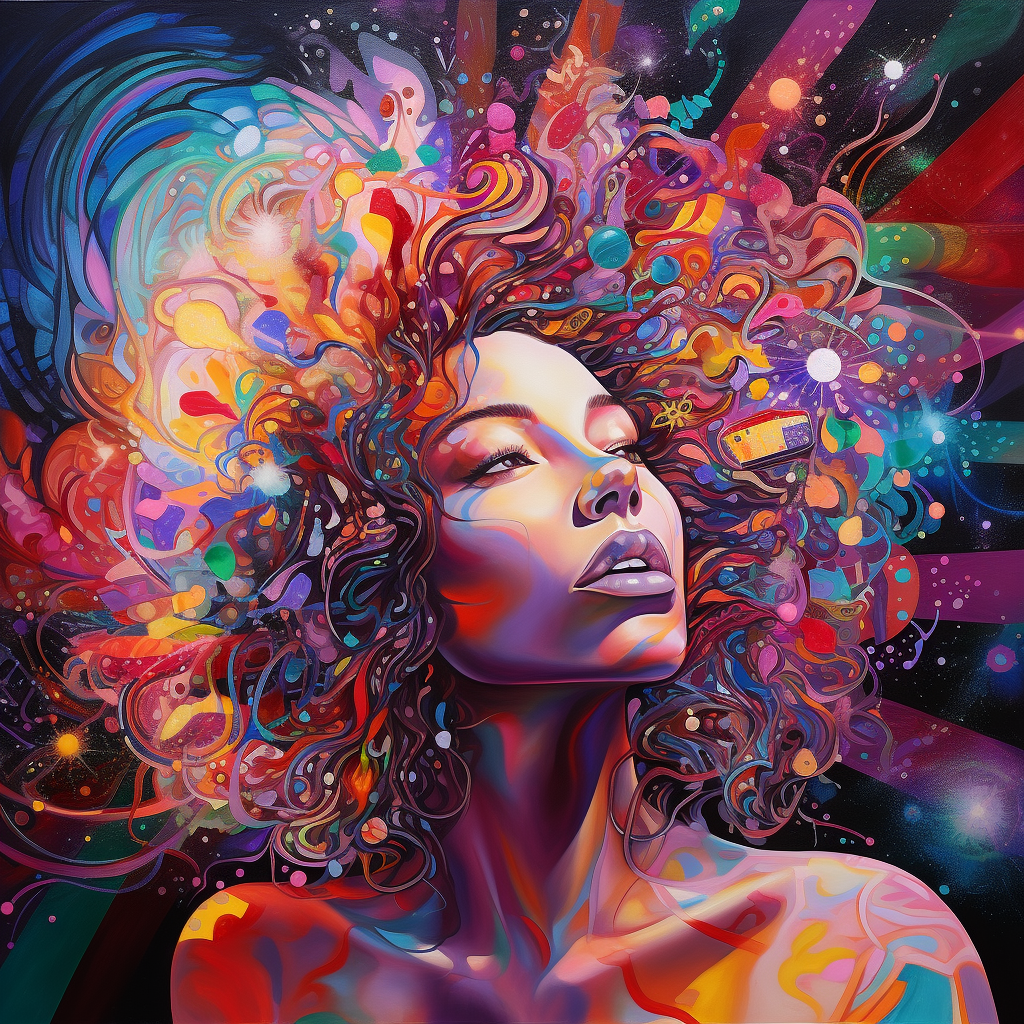

Mystical
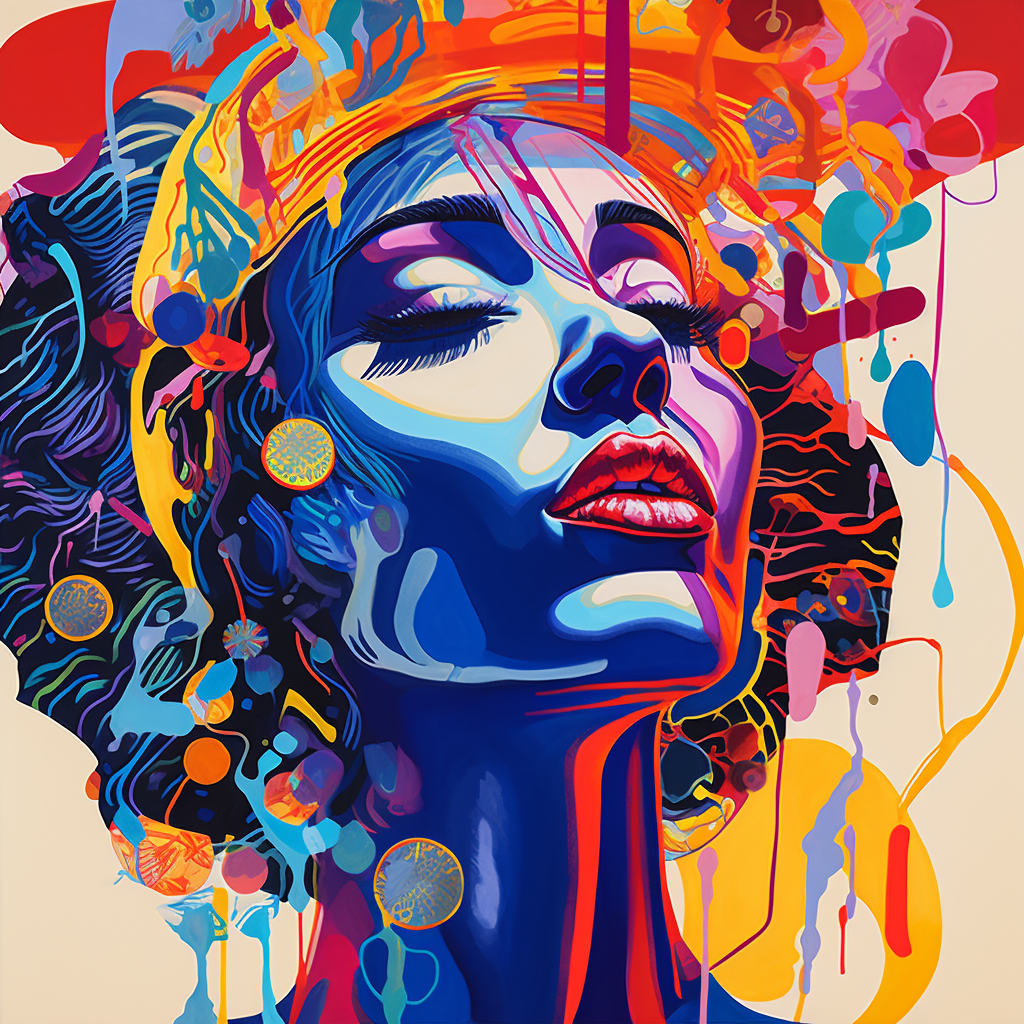

Altered


Unity &
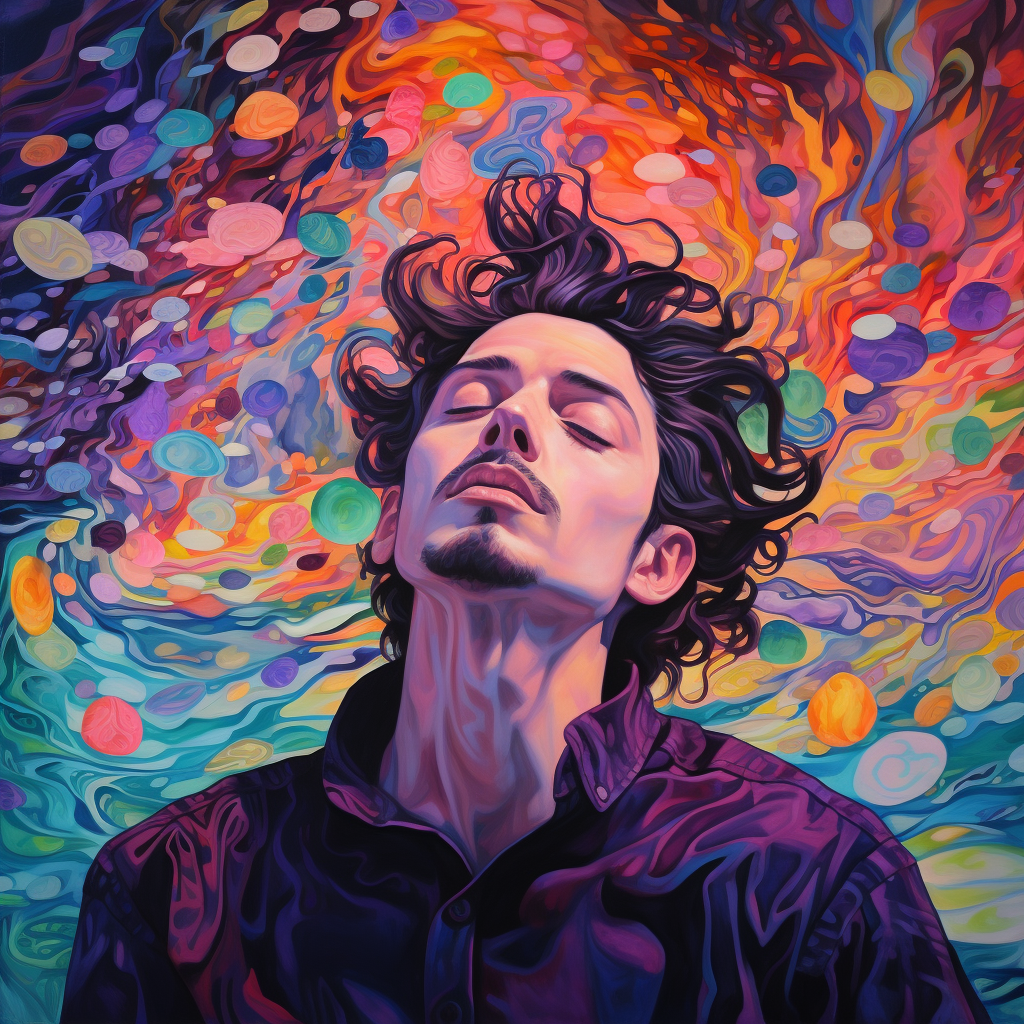

Emotional
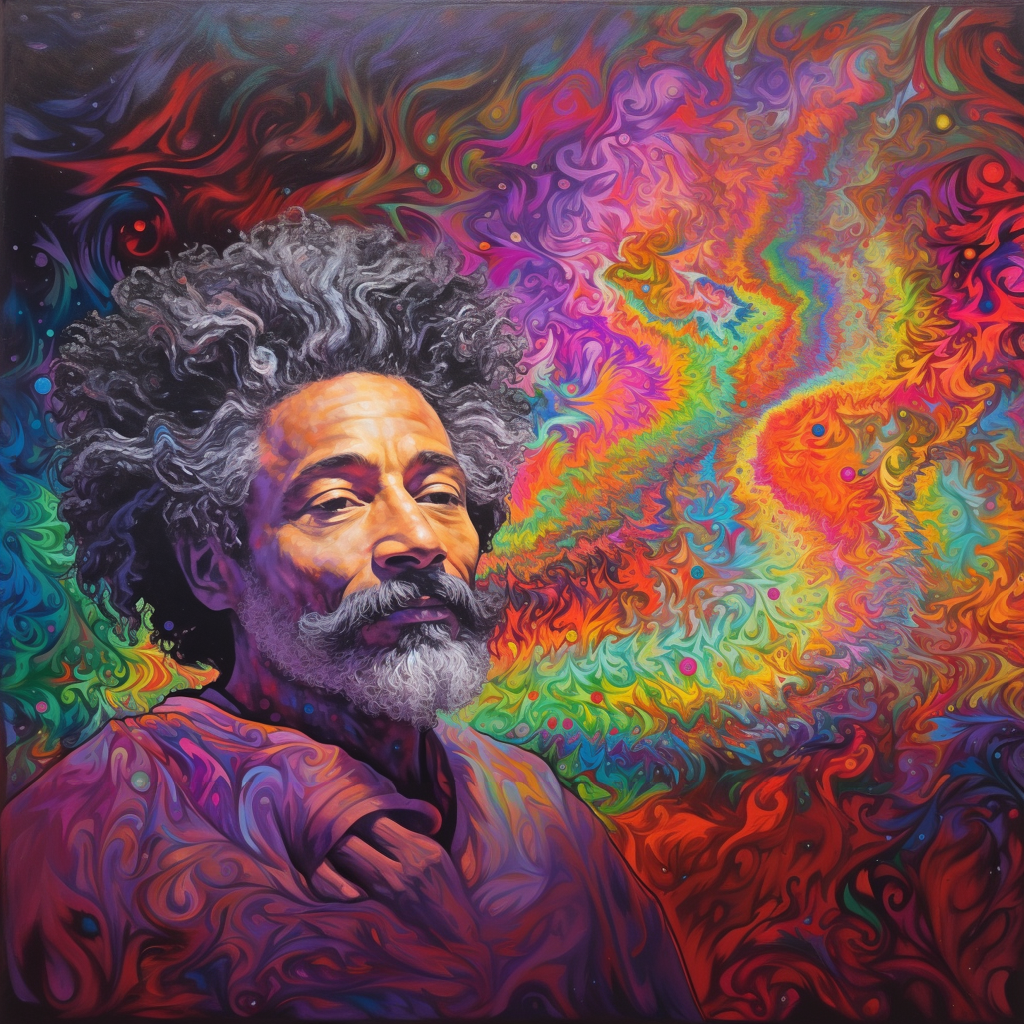

Self-Reflection


Improved
The Latest Scientific Research on Psilocybin
The Therapeutic Potential of Psilocybin: A Comprehensive Review of the Research
By the 1960s, over 40,000 individuals had participated in psychedelic research studies. In 1970, the U.S. government rescheduled psychedelics as Schedule 1 drugs, ultimately ending scientific research and significantly delaying advances in medical knowledge.
In 2004, researchers at UCLA began clinical trials on psilocybin for treating pain, anxiety, and depression in patients with advanced-stage cancer—this reignited interest and significantly renewed efforts in psilocybin research, heralding a new age in exploration for psychedelic therapy. Since then, significant advances have been made in characterizing the chemical properties of psilocybin as well as its therapeutic uses.
This comprehensive review explores this substance's potential in the treatment of neuropsychiatry-related conditions, examining recent advances as well as current research.
Psilocybin Microdosers Demonstrate Greater Observed Improvements in Mood and Mental Health at One Month Relative to Non-Microdosing Controls
A recent study on microdosing psilocybin is the largest longitudinal study to date and one of the few studies to engage a control group. After a month of microdosing, participants’ reported improved mood and reduced symptoms of depression, anxiety and stress, as well psychomotor performance, particularly among adults 55+.
The findings align with a growing body of research and anecdotal reports suggesting the positive impacts of microdosing this and other psychedelics, on mental health and well-being, as well as cognitive function and performance.
Read the full study published in Nature here.
Can psilocybin trigger a bad trip?
Like other psychedelics, it holds the potential to trigger a "bad trip," especially at higher doses. This can manifest as distress or fear, and is often characterized by negative or paranoid thoughts, anxiety, panic, and unsettling hallucinations.
The setting and individual's emotional state significantly influence the experience. A positive environment and mindset are conducive to a pleasant trip, whereas unfavorable conditions or negative emotions can lead to a bad trip, especially for those with personal or familial mental health issues.
Having an experienced facilitator, proper preparation and adhering to safety guidelines can mitigate the risks of a bad trip. Guidance and support to help navigate a challenging experience is invaluable, and post-experience integration can deliver meaningful insights.
Can a bad trip be worth it?
Despite the challenges, a Johns Hopkins study revealed that 84% of individuals who had a bad trip found benefit from it, showcasing the potential for personal growth even from adverse experiences.
Other Possible Side Effects
- Nausea and vomiting
- Diarrhea
- Increased heart rate and blood pressure
- Dizziness and tremors
- Impaired motor coordination
- Impaired judgment
- Disorientation
- Paranoia
- Anxiety/panic attacks
- Emotional instability/psychosis
Contraindications for Use
While possessing potential therapeutic value and being a powerful tool for personal and spiritual growth, this psychedelic is not suitable for everyone. Here are some contraindications and considerations regarding psilocybin use:
- Psychiatric Conditions: Those with a history of psychosis, schizophrenia, severe anxiety, or other serious psychiatric disorders should avoid psilocybin. It may exacerbate symptoms or trigger the onset of latent psychiatric conditions.
- Cardiovascular Conditions: Patients with cardiovascular conditions such as heart disease, hypertension, or arrhythmias should exercise caution, as it can cause fluctuations in blood pressure and heart rate.
- Medication Interactions: Psilocybin may interact adversely with certain medications including antidepressants, antipsychotics, and certain cardiovascular medications. It's crucial to consult with a healthcare provider before mixing psilocybin with other substances.
- Monoamine Oxidase Inhibitors (MAOIs): Combining psilocybin with MAOIs can significantly intensify effects and may lead to harmful serotonin syndrome.
- Liver Disorders: Individuals with liver disorders should avoid this psychedelic as it could potentially cause further liver damage.
- Pregnancy and Breastfeeding: It is contraindicated in pregnant or breastfeeding women due to the unknown effects on the fetus or infant.
- Alcohol and Other Substances: Mixing this psychedelic with alcohol or other substances can lead to unpredictable effects and increase associated risks.
- Lack of Proper Setting and Guidance: An appropriate setting and knowledgeable guide are essential to navigate the psychedelic experience safely, especially for those with conditions or medications that might interact adversely with this substance.
- Personal Readiness: It's essential to consider the one's emotional readiness and intent. This, and any psychedelic, is not a "quick fix" and requires preparation and integration for a holistic and safe experience.
The Legal Status of Psilocybin
Legal Status in the United States
The legal status of psilocybin is evolving across different states and cities in the United States. On the federal level, it remains a Schedule I controlled substance at the federal level in the United States.
On a state level, as of 2022 Colorado recognizes psilocybin as natural medicine. It has decriminalized personal use, possession, growth, and transport for individuals aged 21 and older and established a framework for licensed healing centers.
Oregon has also decriminalized possession of small amounts of this substance and legalized it for therapeutic uses with the Psilocybin Services Act, which laid down a legislative framework for the regulation and licensing of psilocybin for medicinal use.
Cities like Denver, Colorado and Oakland and Santa Cruz in California have decriminalized its use and possession. The District of Columbia has also recently passed similar decriminalization measures. Overall, lawmakers in at least 11 states are looking into the possibility of psychedelics reform legislation.
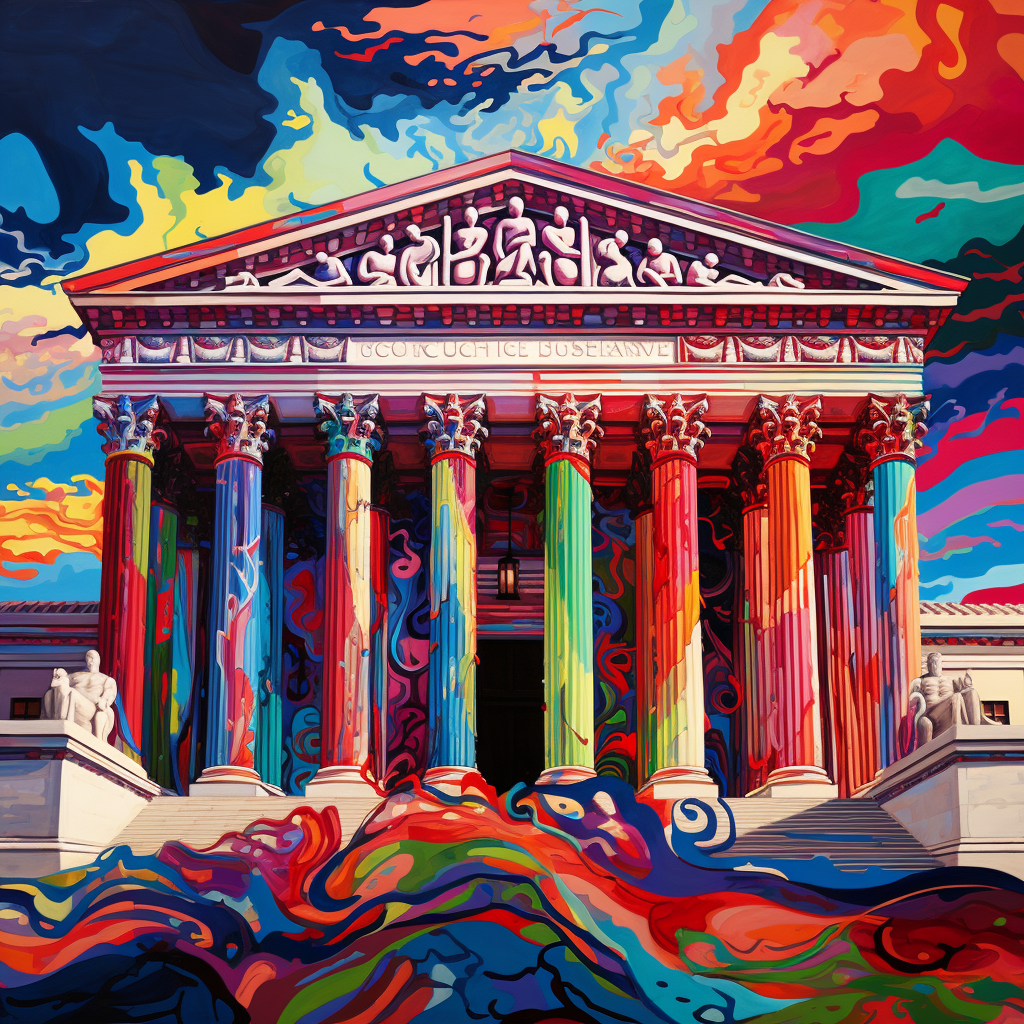

International Legal Status
Beyond the United States, this psychedelic's legal status varies from one country to another. While it is illegal in many countries, there are exceptions where it may be regulated differently. For instance:
- United Nations: Classified as a Schedule I drug.
- Brazil: Considered a controlled substance under the Law on Drugs. Cultivation of psychedelic mushrooms for personal use could be subjected to lesser penalties or differing interpretations of the law.
- Netherlands: The sale and possession of “magic truffles” (sclerotia of psilocybin mushrooms) are legal. However, the more commonly known psychoactive mushrooms are illegal.
- Canada: Classified as a Schedule III controlled substance, making its sale, distribution, and production illegal. However, in August 2020, the Minister of Health granted an exemption for its use for end-of-life care for patients with a terminal illness.
- United Kingdom: Classified as a Class A drug in the UK, making its production, distribution, or possession illegal. There are, however, ongoing clinical trials and a growing movement for its rescheduling for medical purposes.
- Australia: Listed as a Schedule 9 Prohibited Substance making its sale, distribution, and production illegal. However, there's a growing advocacy for its rescheduling for therapeutic use.
- Bahamas, Nepal, and Brazil (specific to psilocybin mushrooms): In these countries, growing, possessing, and consuming psilocybin mushrooms are completely legal, albeit with the restriction that they cannot be sold.

